Accelerating the Academic Achievement of Students Referred to Developmental Education (Assessment of Evidence Series)
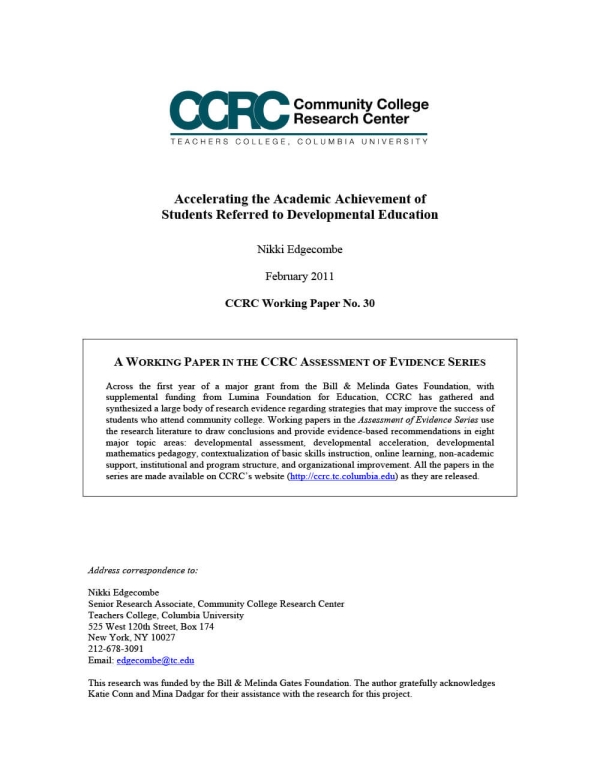
This literature review explores the evidence on the effects of acceleration on student outcomes and describes the various acceleration models that are used with developmental education students.
Toward a New Understanding of Non-Academic Student Support: Four Mechanisms Encouraging Positive Student Outcomes in the Community College (Assessment of Evidence Series)
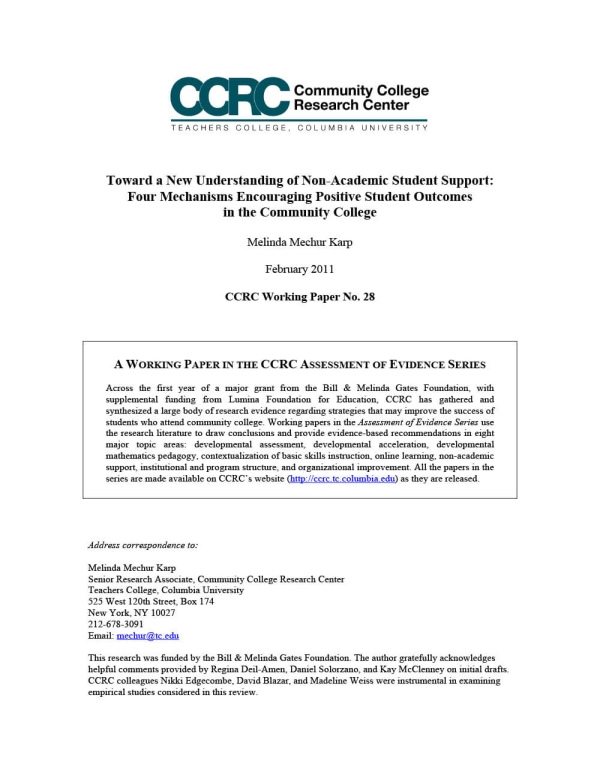
Effective nonacademic supports work by creating social relationships, clarifying goals and enhancing commitment, developing college know-how, and addressing conflicting demands on students.
Performance Incentives to Improve Community College Completion: Learning From Washington State’s Student Achievement Initiative
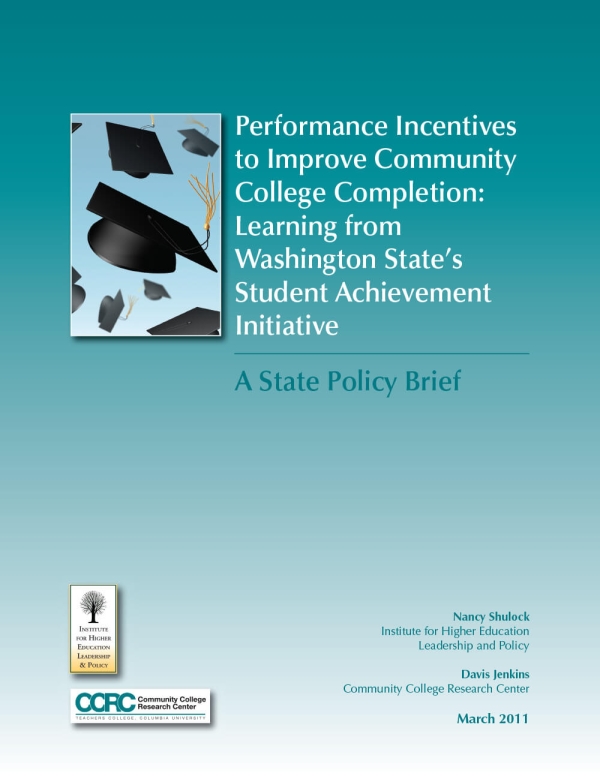
This policy brief examines key issues raised by Washington State’s experience with the Student Achievement Initiative model of performance funding for community and technical colleges.
Online Learning: Does It Help Low-Income and Underprepared Students? (Assessment of Evidence Series)
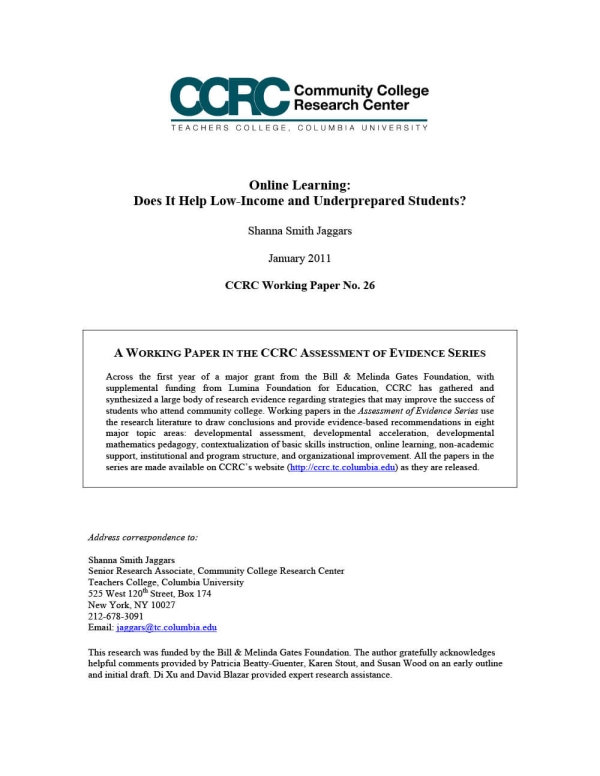
This review of the postsecondary literature on online learning suggests that online coursework hinders progression for low-income and underprepared students, explores why students might struggle in these courses, and offers suggestions on how public policy and institutional practice could be changed to improve online learning.
Reforming Mathematics Classroom Pedagogy: Evidence-Based Findings and Recommendations for the Developmental Math Classroom (Assessment of Evidence Series)
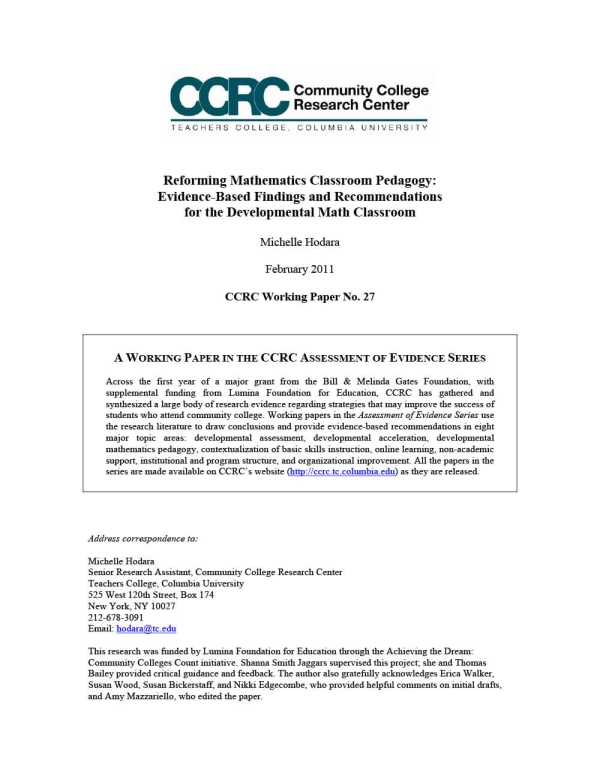
This paper reviews the evidence base for pedagogical reforms in the developmental mathematics classroom, examining the theoretical and empirical evidence on six innovative instructional approaches.
